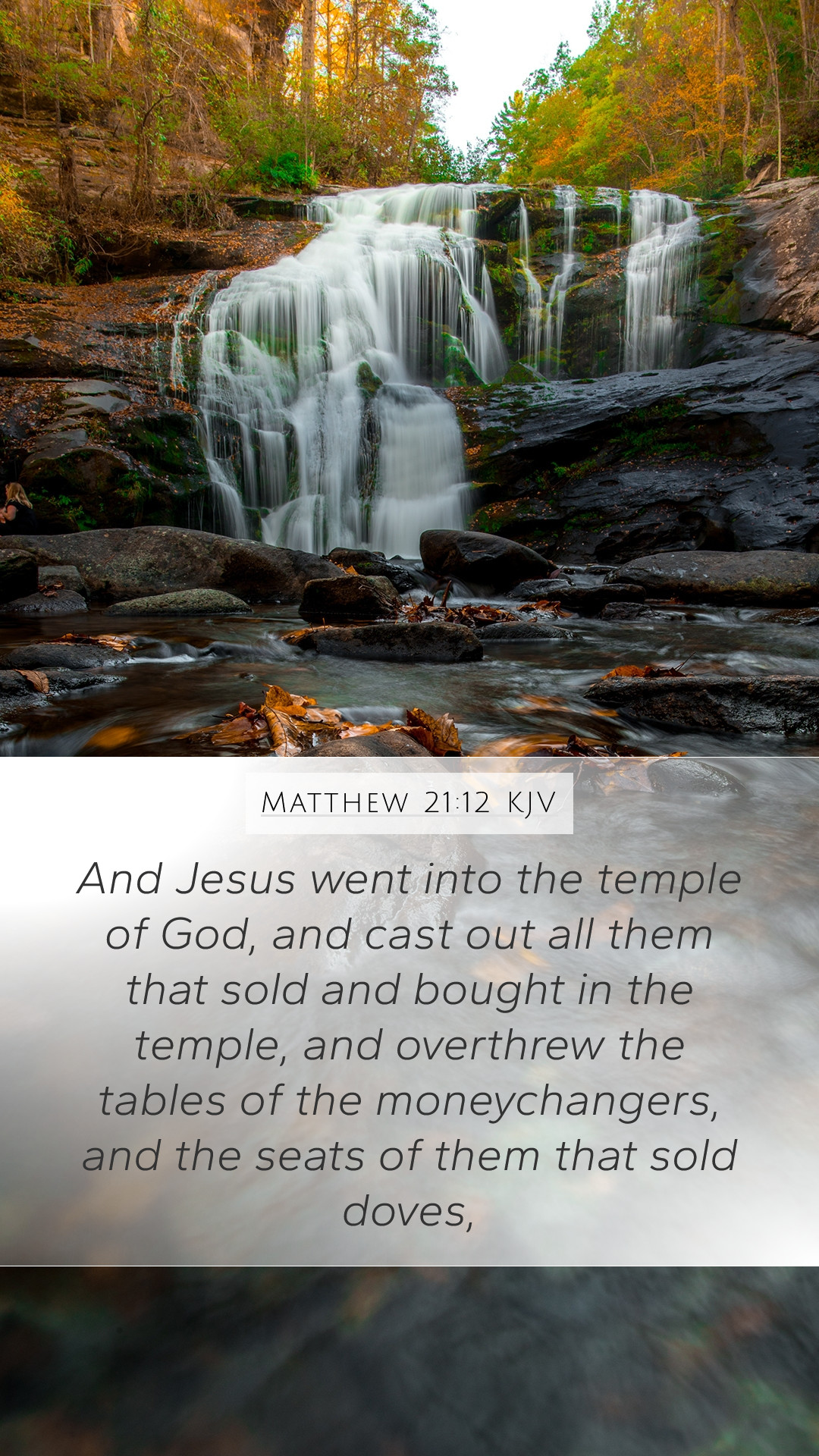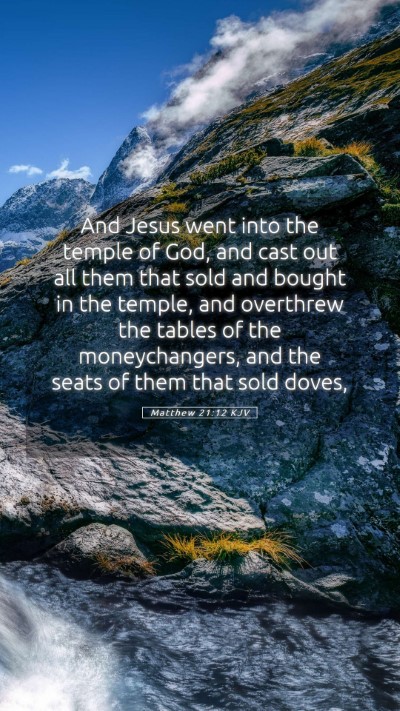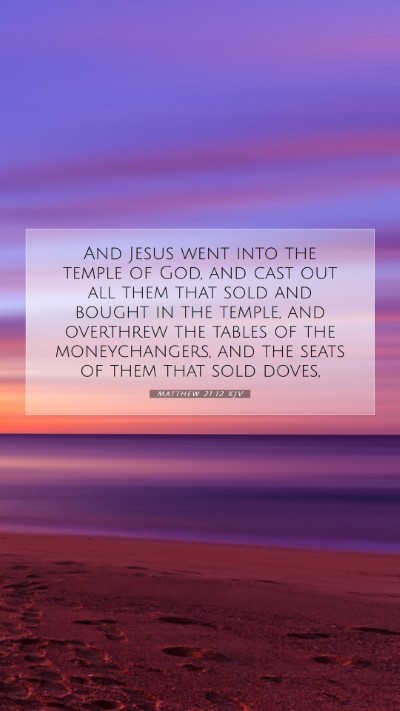Understanding Matthew 21:12 - Bible Verse Explanations
Matthew 21:12 states: "And Jesus went into the temple of God, and cast out all them that sold and bought in the temple; and overthrew the tables of the moneychangers, and the seats of them that sold doves." This verse is an illustration of Jesus' righteous anger against the commercialization and corruption that had infiltrated the sacred space of the temple.
Significance of the Verse
The actions of Jesus in this passage teach important lessons about holiness, reverence for sacred places, and the significance of worship devoid of commercial influence. The temple, meant to be a house of prayer, had become a den of thieves.
Bible Verse Meanings from Public Domain Commentaries
-
Matthew Henry's Commentary:
Matthew Henry notes that Jesus' cleansing of the temple was not merely a physical removal of merchants and money changers but also a spiritual act aimed at purifying worship practices. Henry emphasizes the importance of maintaining the sanctity of places dedicated to God, arguing that commercial interests can distract and distort the true purpose of worship and prayer.
-
Albert Barnes' Notes:
Albert Barnes elaborates on the implications behind Jesus' actions, stating that they illustrate the judgment against abuses within religious institutions. Barnes points to the phenomenon of turning worship into a commercial enterprise as something that can provoke divine displeasure and underscores the need for genuine devotion over ritualistic practices.
-
Adam Clarke's Commentary:
Adam Clarke discusses the broader significance of this event in relation to the prophetic actions of Jesus. He argues that this cleansing of the temple was foretold and reflected Jesus' role as the Messiah who confronts hypocrisy in worship. Clarke explains that this act was a prefiguring of the judgement to come upon those who misuse sacred things for personal gain.
In-depth Bible Verse Analysis
To fully grasp the message of Matthew 21:12, it is essential to understand the historical and cultural context of the temple. During Jesus' time, the temple was not only a spiritual center but also a place where trade was rampant, including the sale of animals for sacrifices. This commercialization often made it difficult for the average worshipper to approach God sincerely.
This passage reveals how Jesus advocated for genuine worship devoid of commercial distractions and highlights the importance of prioritizing spirituality over materialism. In the modern context, one can reflect whether their own worship practices are impacted by commercial or materialistic influences.
Application of the Verse to Daily Life
For contemporary believers, Matthew 21:12 serves as a powerful reminder to examine the integrity of their worship practices. It encourages individuals to remove any barriers, distractions, or materialistic concerns that might hinder their relationship with God. When engaging in Bible study, groups may consider how to create a space that honors the purpose of worship and reflects Jesus' intention for sacred spaces.
Related Bible Cross References
- Isaiah 56:7 - "Even them will I bring to my holy mountain, and make them joyful in my house of prayer: their burnt offerings and their sacrifices shall be accepted upon mine altar; for mine house shall be called an house of prayer for all people."
- John 2:14-16 - A parallel account of Jesus cleansing the temple, demonstrating His zeal for God's house.
- Malachi 1:13-14 - A rebuke of offering blemished sacrifices, emphasizing God's desire for purity in worship.


